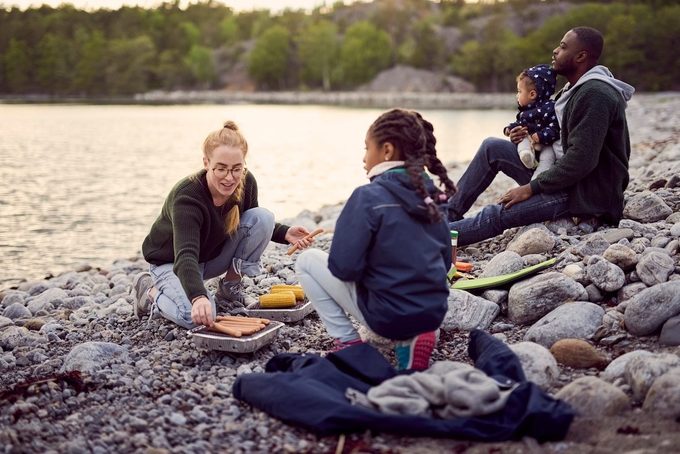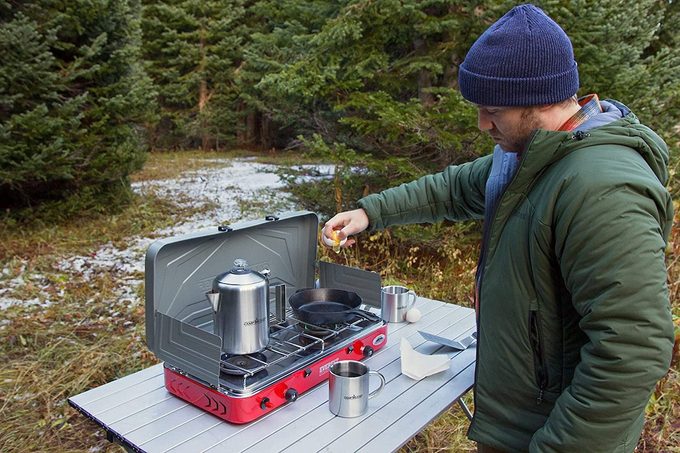A Complete Checklist for Your Next Family Camping Trip

The sun is out and it’s a great time for a road trip. Planning some time for sleeping under the stars can make your getaway even more fun. Camping with the family or a group of friends helps everyone unwind and relax with a dose of adventure.
It’s great to listen to the wind blow through the trees, but that’s not the time to discover you set out without essential gear. Read on to learn what you’ll need at the campground to enjoy your time in nature.
Before You Go
There are a few things to do before you load up the car. To start, choose your campsite. You may need reservations at some locations, especially if it’s in or around a popular national park. If your first choice is not available, this will give you plenty of time to find a backup campsite.
Check the weather forecast where you’ll be camping. Yes, you should be prepared for anything. But a basic sense of the high and low temperatures, precipitation trends, etc. will make planning the trip that much easier.
What do you plan to do and how long are you going to be on your camping trip? If you want to hike or visit hot springs, look for camping spots near those activities. Those decisions will also shape the clothing and gear you pack, as well as how much and what kind of food to bring.
Finally, be sure to let someone know exactly where you’ll be going. Cell phone service may not always be available, so if there’s an emergency a trusted friend or family member will know how to find you.
What to Wear Camping
There’s a fine line between overpacking and being prepared for everything. You’ll want durable clothing that’s appropriate for the weather, like a comfortable pair of hiking pants and shorts, along with t-shirts (long and short sleeve) made of synthetic material. Avoid cotton clothing because it gets cold when it’s wet.
You’ll appreciate long underwear, a hat and a jacket, rain gear and warm socks on those chilly nights around the campsite. It’s good to take a second pair of shoes in case the pair you’re wearing get soggy or muddy. You might even consider a pair that slip on easily in case you need to step out of the tent at night.
Tent

A good tent not only keeps you dry, but gives your crew a fun and safe space to make the campsite feel like a home away from home.
There are few considerations that go into choosing a tent. Start with how many people are planning to sleep in it. Family tents are nice because they have plenty of space. The Coleman Skydome is an affordable option that comfortably sleeps four. If your brood is a little larger, consider something like the multi-room Coleman Rocky Mountain Five Plus or even the Nemo Wagontop Eight. Don’t forget a footprint to protect the bottom of the tent.
Sleeping Gear

Just like at home, being comfortable and warm is the key to getting a good night’s sleep outdoors. Three-season sleeping bags are the best choice for most people from April through October. Look for bags with a temperature rating between 15 and 30 F.
Bags stuffed with synthetic materials are usually cheaper than down filled bags and will keep you warm even when it’s damp out. Down bags are lighter weight and tend to last a little longer. Rectangular bags give you more room, especially if you toss and turn.
The North Face Dolomite One is an incredibly versatile three-in-one bag that keeps you warm all the way down to 15 F. If you’re a cold sleeper, a mummy bag like Marmot’s Trestels will help keep you warm. The Kelty Mistral is a good option for the kids.
A sleeping pad like the Klymit Static V Luxe keeps you comfortable on hard ground and provides an extra layer of insulation. An air mattress is another option if comfort is your primary concern.
Camp Kitchen

Chances are there won’t be any restaurants near your camp site. And that’s okay! Cooking outdoors adds to the sense of adventure, and it’s a lot of fun.
Start with a camp stove. The Camp Chef Everest propane stove features two burners with a 40,000-BTU output, and it’s really easy to clean. But there are plenty of other options among stoves, grills and griddles for camping.
You’ll also need cookware like pots and pans, plates, cups and silverware. The GSI Pinnacle set has everything you need and packs down into a small stuff sack. A kitchen set with utensils and a cutting board rounds out your packing list. A cooler and a table are important to bring along, too.
Besides a cooler, you’ll need food storage for non-perishables. Check the regulations for where you plan to camp; you may need to keep food in a bear bag at night to protect it from hungry animals.
Don’t forget matches and firewood, though be sure to check local regulations before starting a campfire.
Lighting
You’ll definitely need lights at your campsite. Make sure everyone has a flashlight or a headlamp for personal lighting. A lantern or hanging lights will keep your shared space illuminated for cooking or playing games around the picnic table.
Safety Gear
Don’t forget a first aid kit. This 200-piece first aid kit has everything you’ll need for cuts and bruises, bug bites and other common maladies that can put a damper on your camping trip. Sunscreen is a must, too. Take a roll of toilet paper or two, depending on how many people are on the trip. Soap and hand sanitizer are essentials. Towels serve multiple functions, so pack some of those, too.
Camping in the summer means bugs, especially mosquitos. This plant-based spray-on mosquito repellent will keep the flying pests from chewing you up on hikes and other activities. Around the campsite itself, the Thermacell E55 electronic repellent system creates a bug-free zone so you can cook and hang out in peace.
Camp Comfort
Even if you score a campsite with a picnic table, camping chairs make a great addition for sitting around the fire at night. If a nap in the shade is on your agenda — and it should be — this hammock packs down to the size of a grapefruit. A sun shade to spread out over your common area is nice to have, too. And don’t forget some games to play while you’re soaking up all that fresh air.
Finally, take trash bags with you. It’s essential to follow the principles of Leave No Trace to keep your campsite clean, minimize the impact on plants and animals, and ensure the next campers will enjoy your spot as much as you did.
No comments